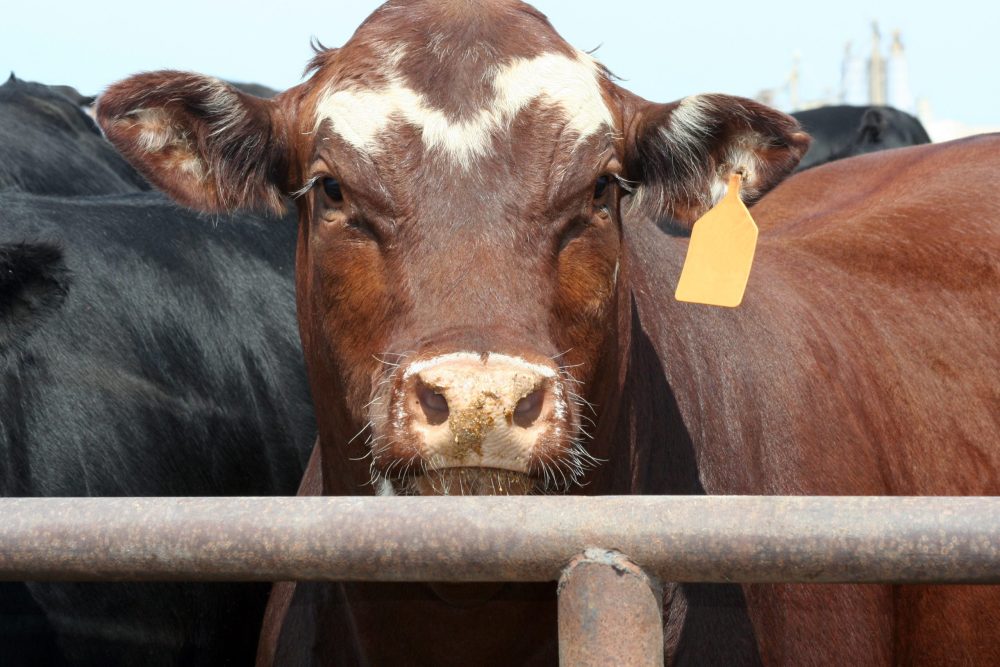With the possibility of a fall election looming, MPs rose from the House of Commons on Wednesday, marking the end to a parliamentary session featuring a handful of laws impacting agriculture.
Brandon-Souris MP Larry Maguire saw his private member’s bill, aimed at lowering taxes on the sales of farms and other small businesses, pass in the House of Commons and go to the Senate after receiving bipartisan support.
The 199 votes for Bill C-208 came largely from the Manitoba MP’s fellow Conservatives, while the 128 opposing votes came from the governing Liberals including Agriculture Minister Marie-Claude Bibeau.
Read Also

U.S. livestock: Cattle futures plunge daily limits on beef price fears
Reuters — Most Chicago Mercantile Exchange live cattle and feeder cattle futures contracts fell their respective daily limits on Friday,…
Those in favour of C-208 say it improves the tax treatment of sales of farms to adult children or grandchildren, by excluding them from current anti-avoidance rules on business transfers.
“Parents will no longer have to be given a false choice of having to choose between a larger retirement package by selling to a stranger, or a massive tax bill because they sold to a family member — their own child or grandchild,” said Maguire, whose bill received support from Keystone Agricultural Producers, the Canadian Federation of Agriculture (CFA) and others.
In the Senate, Maguire’s bill arrived for first reading on May 25 and, after a side trip to the Senate standing committee on agriculture and forestry, passed third reading without amendment on Tuesday.
“If we want to ensure the next generation of family farms is in strong financial health to capitalize on the immense opportunities facing our sector and drive Canada’s economic recovery, we cannot burden them with undue tax liabilities from day one,” CFA president Mary Robinson said Wednesday in a release hailing the bill’s passage through the Senate.
“This is tremendously positive news for farm families, who will now will not have to face an additional tax bill, potentially in the hundreds of thousands of dollars.”
C-208 would come into force when it receives royal assent, which as of Friday hadn’t yet been given.
Concessions
A private member’s bill introduced by Louis Plamondon of the Bloc Quebecois to prohibit any further market access concessions on supply-managed commodities in future international trade negotiations was not voted on.
Bill C-216 received second reading in the Commons in March and, after allegations of political delays, was studied by the international trade committee, which on Tuesday reported it back to the Commons without amendment.
But the dream of shielding supply-managed industries from trade negotiations might end with the current session.
That would be welcome news to opponents of the law, which include the Canadian Agri-Food Trade Alliance. CAFTA’s president Dan Darling had previously told parliamentarians that legislating the exclusion of products from trade talks would irritate trading relationships, and tie negotiators’ hands.
“Put simply, this would be detrimental to our ability to generate growth and support about a million jobs across Canada,” he said in a 2020 letter on the subject.
Proponents of C-216, including representatives from supply-managed industries, said the law would allow continued predictability to ensure food security.
No entry
Foothills MP John Barlow’s bill to amend the Health of Animals Act also did not pass this parliamentary session. First introduced in 2020, the law aims to make it an offence to enter a place in which animals are kept if doing so could reasonably harm the animals.
While it passed second reading in March, the agriculture committee didn’t study it until the current session had almost ended and no vote on a third reading took place.
Another private member’s bill, C-206, which as proposed by Ontario MP Philip Lawrence would specifically exempt farmers’ use of natural gas and propane from federal greenhouse gas emission pricing, on Wednesday cleared third reading in the Commons and first reading in the Senate.
Jockeying for votes is expected to be a popular summertime exercise among MPs, as many political watchers are expecting an election as soon as September.
Easter departs
One long-time Liberal MP who won’t enter the fracas is Wayne Easter, who recently announced his retirement. A stalwart in Canadian agriculture for decades, Easter came off his family’s farm in Prince Edward Island to work with the National Farmers Union, where as president he rose to prominence championing the Crow Rate on grain handling.
Easter entered federal politics in 1993 as the MP for Malpeque, where he handled the agriculture portfolio as a parliamentary secretary (2004-05), opposition critic (2006-11) and member of the Commons’ standing committee on agriculture (2004-11).
Throughout his time in government, he was known as a fierce advocate — once arguing against his own Liberal government’s support of introducing rBGH, a bovine growth hormone that is still banned today.
“It has been my honour to work with and serve the residents of Malpeque, and it has been my honour to work with all members across political lines,” he said during his farewell speech to parliamentarians.
“It is the discussion, it is getting to know each other and it is the debate that, at the end of the day, makes for better policy and a better country.”
— D.C. Fraser reports for Glacier FarmMedia from Ottawa.













